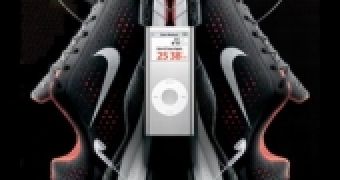Apple and Nike have been named in yet another lawsuit over the popular Nike+ iPod Sport Kit. Much like the previous lawsuit, the companies are charged with infringing on existing patents.
Brothers Greg and Kenny Anderson of Leaper Footwear, a company from Utah, are suing Apple and Nike for stealing their decade old ideal for the Nike+ iPod Sport Kit. According to the brothers, they invented the footwear that measures locomotive performance back in 1995 and patented it in 1998. Their complaint was filed Monday in the United States District Court for The District of Utah Central Division. According to it, Leaper contacted Nike in 2000, suggesting that the company make use of Anderson?s patent in their shoes. Two weeks later, Nike replied stating that they had no interest in such a product.
The suit claims that Nike acted on Leaper?s suggestion in 2006, when they started working with Apple, but they did not seek permission to use the patent. According to the 8-page suit, both Apple and Nike have greatly profited from the unauthorized use of the patent. Last December, Nike announced that over 3-million Nike+ shoes had shipped. And Apple announced that it had sold 450,000 units in the kit's first three months on the market. As such, the brothers allege that Nike and Apple have generated "hundreds of millions of dollars in infringing sales" of iPod nanos, Nike + shoes, and Nike + iPod Sport Kits, "easily exposing them to liability in the tens of millions of dollars" for patent infringement. The damages sought by the Andersons are to be determined in trial, but the two also seek a permanent injunction barring both companies from further infringement on their patent and an order from the Court that they be awarded three times the damages assessed at trial due to the "willful and deliberate nature" of their actions.
This is not the first such lawsuit, a similar one being filed back in January by Colorodo-based PhatRat Technology. Much like now, PhatRat charged both companies with infringing on four of its own patents.

 14 DAY TRIAL //
14 DAY TRIAL //